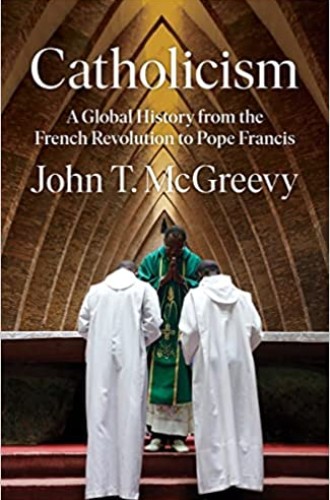From a Western phenomenon to a truly global church
John McGreevy makes what could have become a dull textbook into a riveting narrative of Catholicism’s modern history.
In medieval and Renaissance frescoes depicting the cardinal virtues, artists regularly portray prudence with a Janus face: a youthful face facing the future and an elderly one gazing backward into the past. This symbolism suggests that to judge and act wisely, one must know the past—how the theater of action we call the present came to be. Philosophers and theologians, not surprisingly, often regarded prudence as the essential virtue for leaders.
Whether decision-makers at the University of Notre Dame had all of this in mind when they elevated the historian John McGreevy to the office of provost last year is beside the point, for they appear to have chosen wisely. He has written a remarkable book on Catholicism’s modern history, which positions him well for leadership at the nation’s (and arguably the world’s) flagship Catholic university.
In taking on a work of this scope, the author must know what to leave out, how to condense, and how to pick choice quotes, events, and people to illustrate larger trends and forces. McGreevy succeeds on practically all counts, making what could have become a dull textbook survey into a riveting narrative. Most of the 15 chapters and the conclusion, entitled “Pope Francis and Beyond,” are in fact page-turners, each beginning with a particular vignette or profile of an individual before the camera widens to explore the bigger picture.





